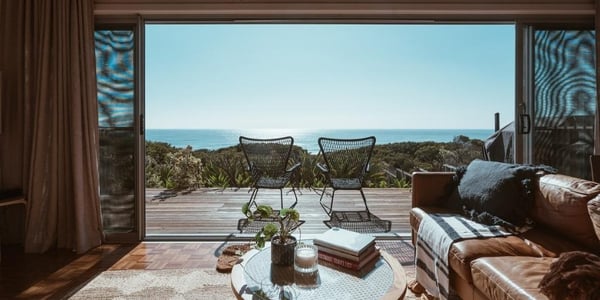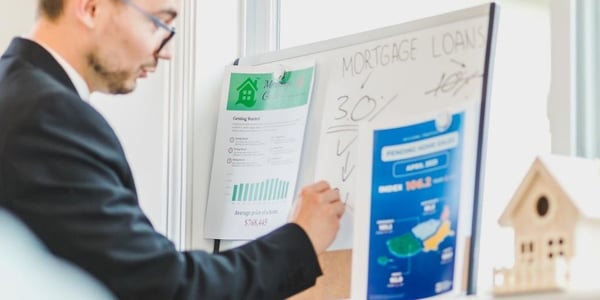It's common to think of acquiring a second home as a full owner. In its purest form, full...
Is a Second Home a Good Investment or Income Opportunity?
Among the many motivations for purchasing a second home, buyers must consider the financial implications of owning a real estate asset. This post will focus on a second home as an investment and income opportunity. Subscribe to our blog so you don't miss our upcoming post covering the costs side of the equation.
An Investment
When considering a second home as an investment, we’ll restrict the discussion to a property you intend to live in part of the time, not one you buy but never stay in.
Purchasing a second home means you are acquiring an asset that could fluctuate in value. Usually, this pertains to a real estate asset. Assets like boats or RVs are more likely to lose value over time. However, in certain high-demand situations, appreciation can occur. For example, new and used RVs were selling at high prices during the height of the pandemic.
Except for the 2008 crash, real estate value appreciation has been the norm in most markets over the past few decades. Therefore, most second home buyers could be reasonably confident of future profit. Ultimately, the degree to which real estate appreciation might factor into a second home buying decision depends on one’s time horizon.
If the primary purpose is to have a nice place to live part-time over the long haul, then value appreciation is icing on the cake. But, of course, depreciation could also be a risk. (Coastal residents in Florida could be faced with this prospect.) In most cases, however, the longer a second home is owned, the greater the chances that market fluctuations will average out in the owner’s favor.
However, market ups and downs are more troublesome if a buyer has a shorter time horizon. Therefore, when considering a second home purchase, think through the contingencies for market changes and how they fit into your financial picture. In addition, if you’re considering more than one location for a second home, research projections for future value appreciation. Choosing an area with expected higher valuations could mean more profit in a future sale.
Click here or the button below to download our Your Guide to Finding a New Home After 50 eBook!
An Income Source
A further economic advantage of a second home is rental income. Many families who might not otherwise be able to afford a second home can rent their property to offset the costs of owning the property.
Going this route requires a lot of thoughtful consideration. So here are some questions you need to ponder:
Do you have the money?
There will be costs to buy, furnish, and maintain the property on an ongoing basis.
Does the HOA or locality allow rentals?
The ability to rent out your second home may be restricted by your homeowner association (HOA). Also, the local government may have restrictions on certain kinds of rentals. For example, both New York and San Francisco have rules limiting short-term rentals, such as Airbnb and VRBO.
Do you have the time?
Being a landlord can be time-consuming. In addition to preparing the property for rental, there is also time required to keep the books, market, manage the tenants, and maintain the property. You can offload some tasks to accountants, lawyers, or property management companies, which adds costs.
Do you have the mental and emotional stamina?
Landlording exerts a mental and emotional toll. Being a landlord can be an “on-call” job where responding to tenants’ needs at all hours is not uncommon. Also, keeping up with the day-to-day demands of maintaining both the property and life’s other obligations can be stressful.
Are you willing to “share” your second home?
While a rental income stream can help pay for a second home you otherwise could not afford, it might not feel like it’s 100% yours. First, you may not want to use the property anytime you like. For example, you may not be willing to forego the rental income on popular weeks even though you might have enjoyed using the place yourself. Second, “strangers” are using your home. For example, you may need to store certain personal valuables in “owner’s closets” that are off-limits to tenants. For some, “sharing” your second home is no big deal. To others, however, it might feel like a big sacrifice.
Long-term or short-term rental?
Landlords need to decide if their rental will be long-term or short-term. Short-term rentals generally refer to Airbnb or VRBO-type accommodations in which only the minority of tenants stay 28 days or more. Long-term, by definition, suggests multiple months.
- The advantages of long-term rentals are:
- Less Turnover Effort – Fewer tenants annually means less cost and effort for marketing, scheduling, tenant screening, cleaning, and bookkeeping
- Tenants Handle Utilities - Long-term renters often pay their own utilities
- Less Turnover Effort – Fewer tenants annually means less cost and effort for marketing, scheduling, tenant screening, cleaning, and bookkeeping
- Short-term rental advantages are:
- Turnkey system – Many tasks are automated if the short-term rental is managed by platforms like Airbnb or VRBO, but costs are higher
- Higher Profit - Short-term rentals can typically charge a higher per-night rate
- “Problem” tenants go away quickly – Frequent turnover means the landlord does not have to endure a bad tenant for very long
- Turnkey system – Many tasks are automated if the short-term rental is managed by platforms like Airbnb or VRBO, but costs are higher
How to Move Forward
Suppose you’ve decided to jump into the landlord game. What, then, are the steps to getting set up? The following steps assume you already own the property.
Plan the Business
If you decide to be a landlord, you become a business owner. Take time to develop a basic business plan that includes these tasks:
-
- Lay out the high-level case of why this makes sense financially
- Define the market demand for the property and why it would be attractive to renters
- Assess the local economy’s long-term prospects
- Research the availability of support services like property management and interior/exterior maintenance
- Understand the legal and regulatory landscape
- Develop a marketing plan for how you’ll promote the property
Map Out Detailed Budgeting and Expenses
Once the high-level financial picture is focused, fill in the details: project monthly income and costs with as much specificity as possible. Enlist the help of an experienced accountant and bookkeeper to set this up. That person can also coach you on the monthly schedule of financial activities you need to follow.
Prep for Renters
The second home needs to be structured for renters. For example, are all necessary furnishings, appliances, and electronics ready? If the washing machine is on the fritz, it needs to be fixed. Also, do you have a secure place to store personal items during tenant stays? This may be as simple as installing a lock on an existing closet.
Install a Reliable Scheduling Tool
When scheduling renters, you’ll want a system that minimizes the chance of errors like overbooking. This may be software for your computer. Alternatively, you may rely on scheduling services provided by the property management company or short-term rental platform, as appropriate.
Execute the Marketing Plan
Now, get the word out about your rental! Many online services list rentals for a fee and social media can be used as a do-it-yourself promotion method.
The potential financial upside of ownership makes the prospect of a second home even more attractive. However, thoroughly understanding these financial maneuvers is crucial to maximizing future returns and keeping your stress level down.
Want more? Download our eBook, Your Second Home: Making the Dream a Reality!
Related Content:
- Should I Invest in a Second Home?
- Second Homes: Buy or Rent?
- Second Homes: Full vs. Partial Ownership
- Second Homes: What Is Fractional Ownership?
- What Are the Different Types of Second Homes?
- What Does a Second Home Really Cost?
Looking for other related content? Check out our Housing Resources page!








